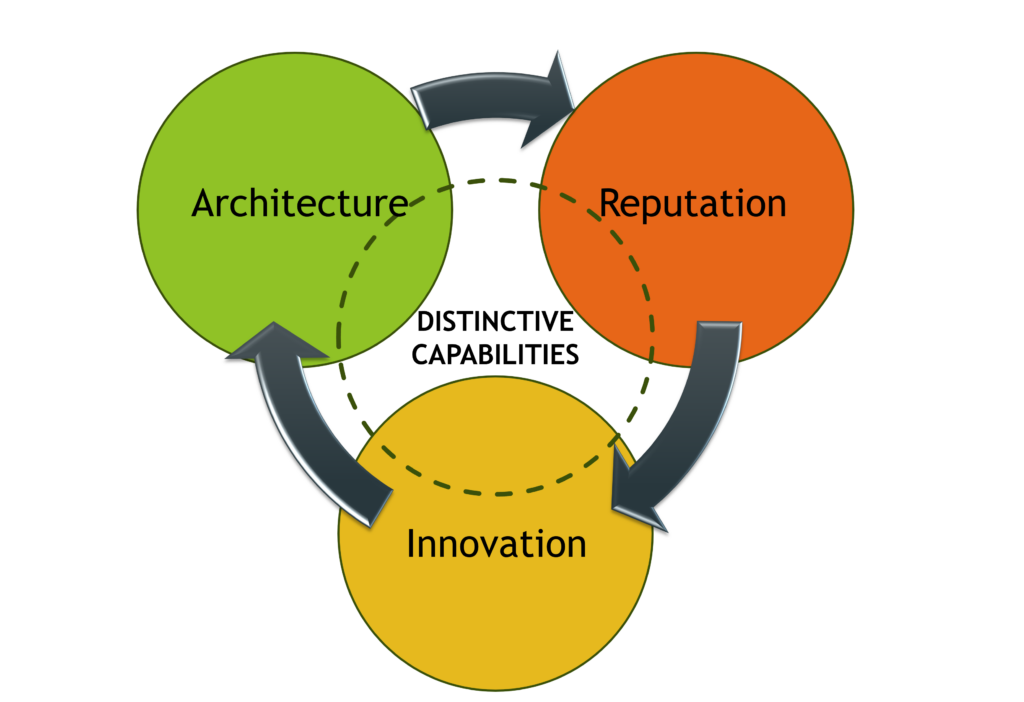
Elements Distinctive Capabilities:
Architecture
- Corporate networks and relationships, internal and external architecture, win-win, supply chain management
Reputation
- Brand, and power of people in the organisation
Innovation: Hard and risky to sustain
- technological success but commercial failure – difficult process to manage and budget – number 2 developer often more successful (marketing R&D)
Principle:
Distinctive Capabilities – result of actions of many throughout the organisation
Issues:
Must be sustainable and appropriate to business
- Resource Limitations: Organizations may face challenges in identifying and developing distinctive capabilities, especially if they lack the necessary resources or expertise.
- Competitive Dynamics: Maintaining distinctive capabilities requires constant vigilance and investment to stay ahead of competitors who may attempt to imitate or replicate them.
- Alignment with Strategy: Distinctive capabilities must be aligned with the organization’s overall strategy and business objectives to ensure that they contribute effectively to its competitive advantage.
Experience curve: increased efficiency, specialization, innovation, greater productivity, improved resource mix
Thompson & Richardson, 1996, generic strategic competencies: Content – reflect ways adding value, Process – changing and improving content, awareness and learning – change management process in satisfying needs.
Applications:
To determine the organisations competitive advantage
- Strategic Planning: The “Distinctive Capabilities” model is used by organizations to inform their strategic planning processes and identify areas where they can develop or enhance distinctive capabilities to gain a competitive edge.
- Resource Allocation: It helps organizations allocate resources effectively by focusing investment on developing and strengthening distinctive capabilities that are most relevant to their strategic priorities.
- Competitive Analysis: The model provides a framework for analyzing competitors’ capabilities and identifying opportunities for differentiation and value creation in the marketplace.
Source Distinctive Capabilities:
Kay (2003)






